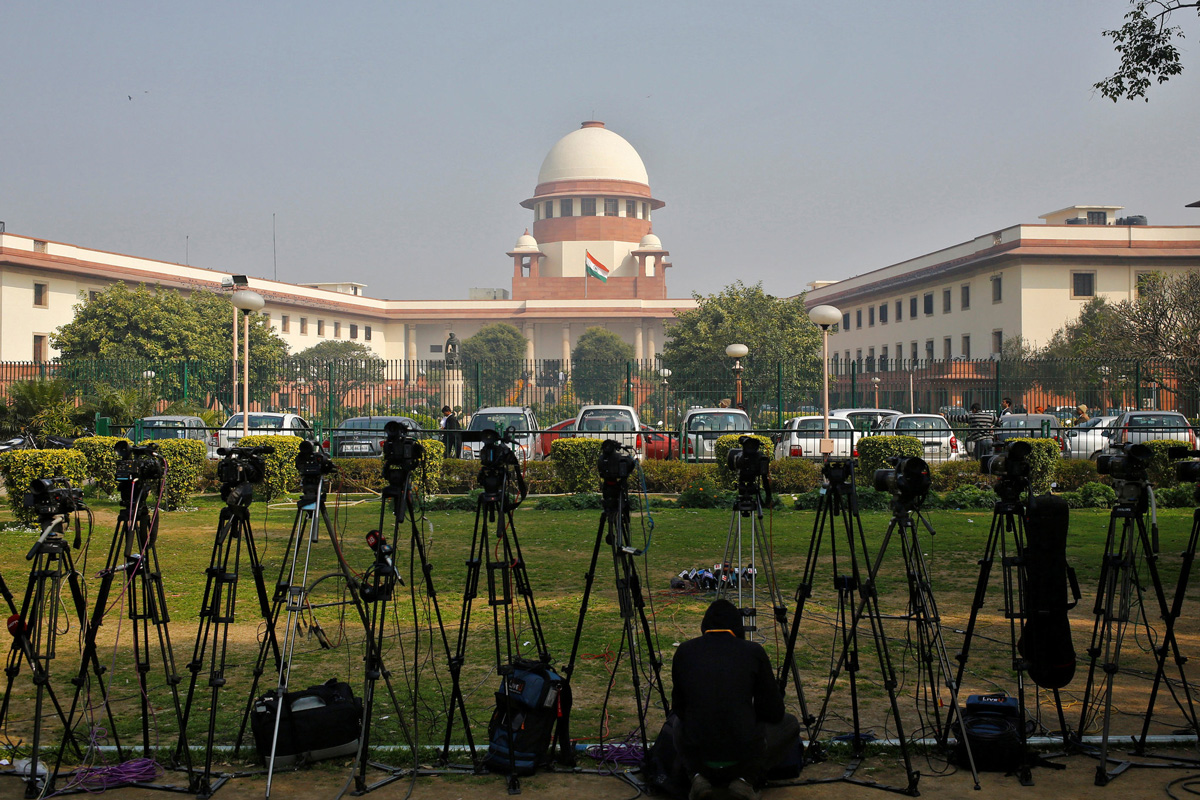Zakir Hussain no more: YS Jagan Mohan Reddy mourns
Tabla legend Zakir Hussain, known for his global influence on Indian classical music, passes away at 73, leaving behind an enduring legacy.
They were submitted to CJI Sharad Arvind Bobde on 6 October and released to the media in Vijayawada on 10 October by Ajeya Kallam, Principal Advisor to the Chief Minister.

(Photo: Getty)
Judiciary, the last sentinel, must keep itself above suspicion. The Supreme Court of India is saddled with an unwelcome task: resolving serious allegations levelled against the second senior-most judge of the court due to be elevated as Chief Justice of India on 24 April 2021.
The charges made by YS Jagan Mohan Reddy, Chief Minister of Andhra Pradesh, include malfeasance and cannot be brushed aside easily. They were submitted to CJI Sharad Arvind Bobde on 6 October and released to the media in Vijayawada on 10 October by Ajeya Kallam, Principal Advisor to the Chief Minister.
Advertisement
Two practising advocates, GS Mani and Pradeep Kumar Yadav have already moved a writ of quo warranto in the Supreme Court on 14 October, accusing the Chief Minister of misusing his position and power by making “false, vague and scandalised allegations openly in the public against the senior-most sitting judge of the Hon’ble Court,” and sought justice.
Advertisement
The petitioners have asserted the executive should not override the judiciary. Mr Reddy is not the first AP Chief Minister to complain against judges. D Sanjivayya, Chief Minister in the 1960s, complained to then Union Home Minister Lal Bahadur Shastri that Chandra Reddy, Chief Justice of the Andhra Pradesh High Court, was promoting casteism in the judiciary.
The complaint was settled amicably. In this case, the Supreme Court Advocates-on-Record Association has pulled up Mr Reddy for his letter to the CJI and said making it public was “clearly a dishonest attempt at overawing the independence of judiciary and tantamount to contempt of the court.”
The Bar Council of India has also condemned the tactics. Contempt of court, however, cannot always be used as the first weapon to silence criticism. The judiciary should have taken some corrective steps after the 12 January 2018 press conference by four senior judges of the Supreme Court declaring that all was not well with its functioning and that sensitive cases were being assigned to select Benches.
The Andhra Pradesh High Court is accused of following the same pattern allegedly under the influence of Justice NV Ramana. Independence of judges cannot exist without accountability. The allegations levelled against Justice Ramana and four Judges of AP High Court by the Chief Minister are easily verifiable. If found untrue, Mr Reddy should be hauled up for contempt of court and dismissed as Chief Minister.
But if the allegations are found to have substance, a resolution may pose problems. Article 124 (4) of the Constitution says, “A Judge of the Supreme Court shall not be removed from his office except by an order of the President passed after an address by each House of Parliament supported by a majority of the total membership of that House and by a majority of not less than two-thirds of the members of that House present and voting has been presented to the President on the ground of proved misbehaviour or incapacity.” That as the country knows is easier said than done.
Advertisement